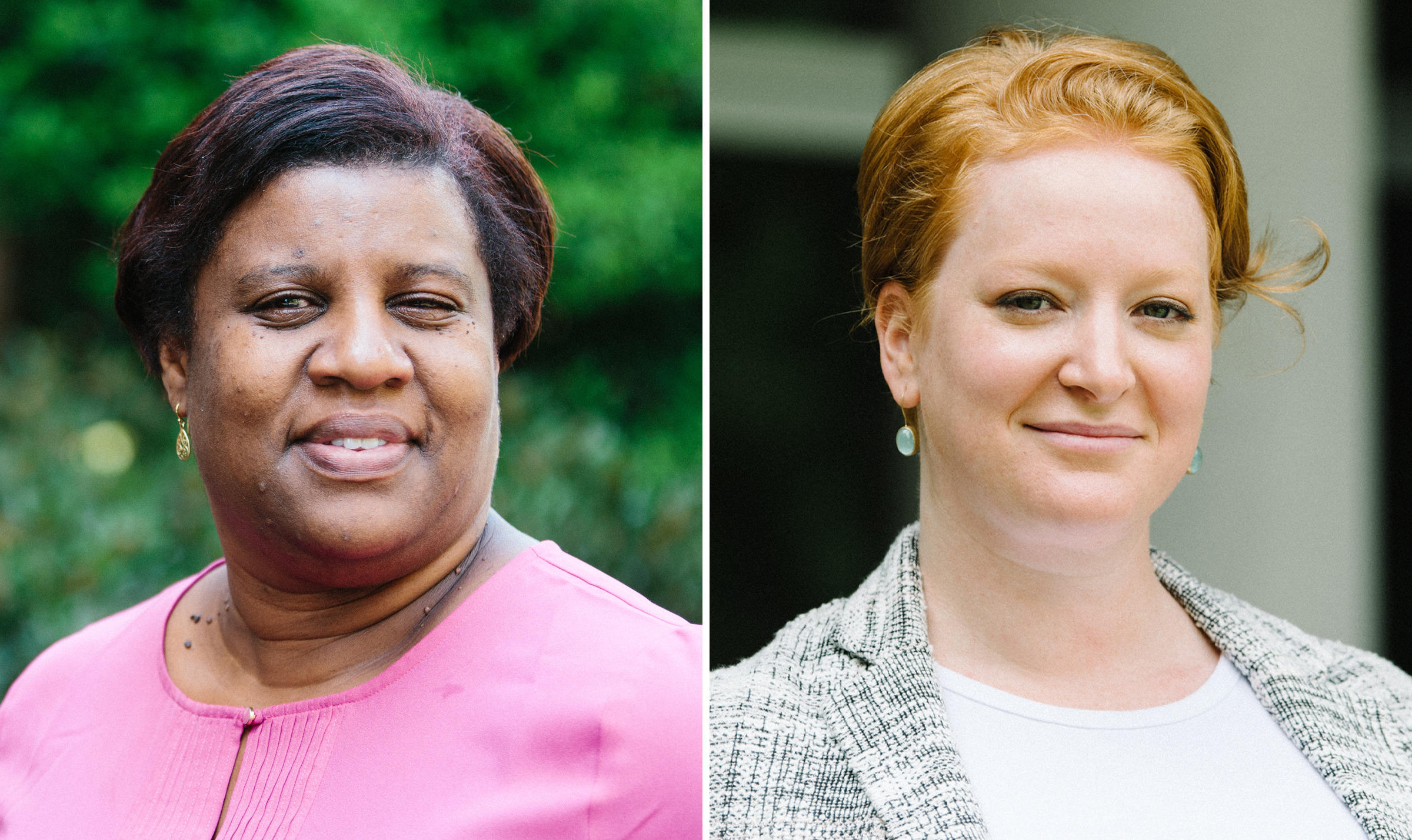Enthusiastic. Engaging. Inclusive. Simply the best.
Those are but a few ways students described the UNC School of Education’s 2021-22 Teaching Excellence Award recipients Martinette Horner, Ed.D., and Dana Riger, Ph.D.
The annual awards recognize School of Education faculty members who demonstrate expertise, creativity, and innovation in their classrooms; who make learning engaging, vibrant, and relevant to students; and whose work and accomplishments set a standard of excellence.
Horner and Riger each received $1,000 and were recognized at the School’s November faculty meeting and at a School-wide end-of-semester celebration on Dec. 8. Faculty members Lauren Sartain, Ph.D., and Helyne Frederick, Ph.D., were named as finalists.
“When it comes to teaching excellence at this school of education, we have an embarrassment of riches,” said Fouad Abd-El-Khalick, dean and Alumni Distinguished Professor. “Our students learn from truly exceptional scholars dedicated equally to advancing our fields and to empowering leaders of tomorrow.
“I congratulate Drs. Horner and Riger on this honor. Their nominations and receipt of this award illustrate their exceptional investment in students and the classroom experience.”
Current and recently graduated students submitted 21 nominations which were evaluated by a committee of faculty members including Eric Houck, Kara Hume, and Xue Rong.
Abd-El-Khalick instituted the awards to recognize exceptional teaching at the School of Education. They were first awarded in 2021.
Horner, an assistant clinical professor and Master of School Administration program director, was praised by nominators for her commitment to making her hybrid classes inclusive, whether students attend online or in-person, and to making materials engaging and applicable for future school leaders.
“This professor is an inspiring educator and leader and sets a standard of excellence for me to follow as I continue my educational journey,” one nominator wrote of Horner.
Another nominator wrote: “This faculty member excelled in making class extremely welcoming despite being hybrid. She is intentional about touching base with each student every class.”
Another wrote: “This class has been the best I have taken at UNC yet! I greatly appreciated the practicality of the lessons and the applications/examples with breaking down the case studies.”
In addition to leading and teaching in the MSA program, Horner also serves as regional director of the North Carolina New Teacher Support program, which offers services to enhance teachers’ skills and to reduce attrition among beginning teachers.
Horner’s research seeks to connect leadership practice and preparation. She works closely with school and district partners to nurture partnerships that help inform educator preparation programs and research initiatives in the School of Education.
Riger is a clinical assistant professor who teaches in the Human Development and Family Science program. Her nominators noted her engaging classes, where students feel heard and empowered to contribute in discussions.
“This professor is simply the best,” a nominator wrote of Riger. “Her lectures are structured beautifully, and students experience a great balance between content, discussion, and group learning.
Another wrote: “She has high expectations for her students, and ALWAYS ensures we have the capacity and resources to meet these expectations.”
Another wrote: “While participation is mandatory, it is actively encouraged so that everyone wants to instead of feeling that they have to. Her lectures are relevant and inclusive making the class even more fascinating.”
Riger’s research has primarily focused on the role that technology plays in couples and families’ lives. She has explored the effects of technology on romantic relationships, technology-assisted interventions used by MFTs, and teletherapy for couples and families. Her current research focuses on online dating/dating apps and factors that influence stigma-based behaviors.
To be considered for the award, faculty members needed to have worked at the School for at least one academic year, taught undergraduate or graduate students, and demonstrated evidence of consistency of exemplary teaching.
